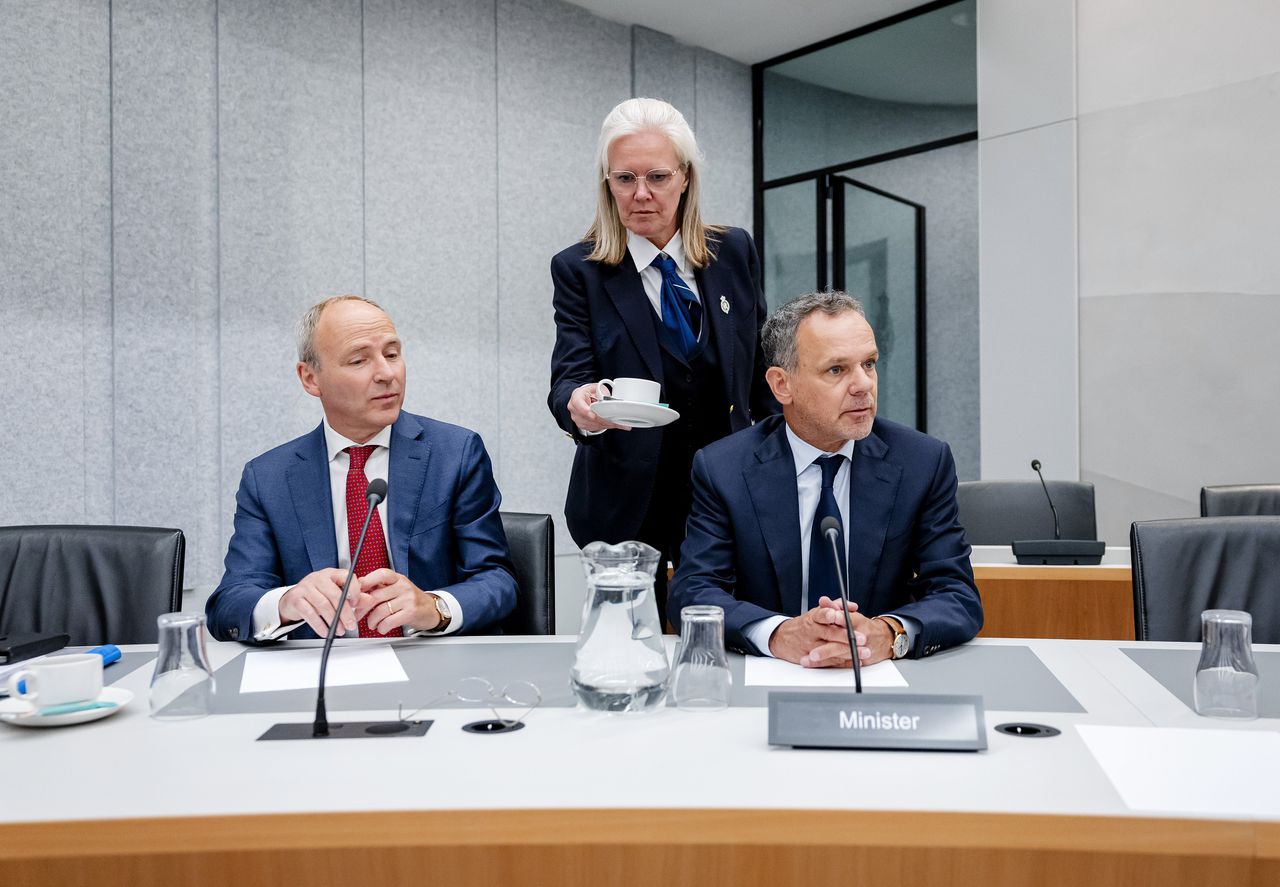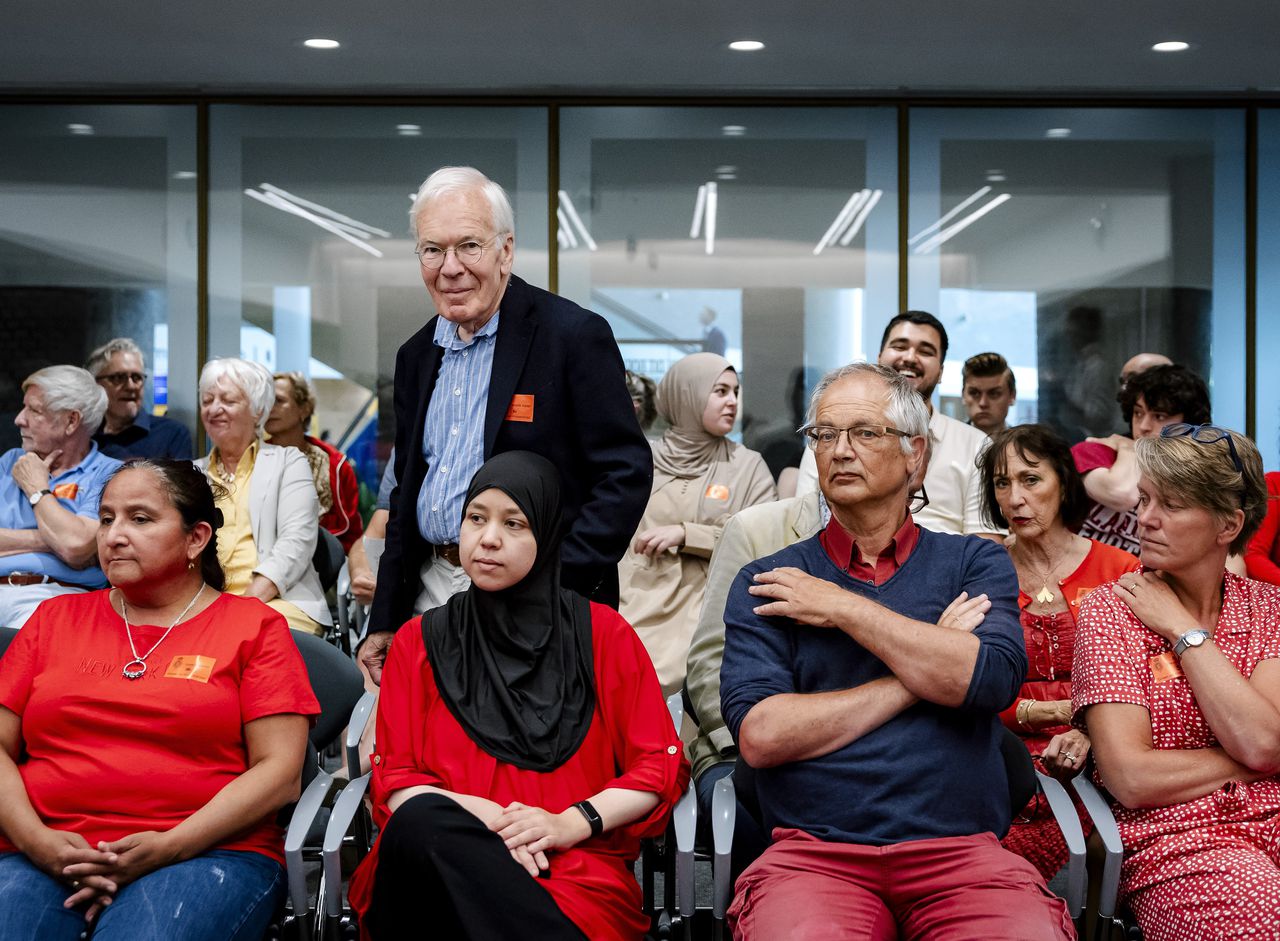"Heartbreaking" and "no time to lose." Anger and disbelief about Gaza were heard in Parliament, but additional sanctions against Israel go too far for some.
%2Fs3%2Fstatic.nrc.nl%2Fwp-content%2Fuploads%2F2025%2F08%2F07201843%2Fdata135823946-8b394a.jpg&w=1920&q=100)
The House of Representatives has debated Gaza countless times, but never before has the humanitarian situation of the oppressed and starving Palestinian population been as dire as it is now. Therefore, the House interrupted its summer recess on Thursday to debate what the Netherlands can and should do to stop the war and the suffering, which parties described as "catastrophic," "heartbreaking," and "inhumane." "We are in danger of becoming spectators to ethnic cleansing or genocide, or we already are," observed D66 spokesperson Jan Paternotte.
A growing number of aid organizations, experts, and, more recently, human rights organizations in Israel are establishing that Israel is committing serious war crimes in Gaza, using hunger as a weapon, and committing genocide against the Palestinian population. The Netherlands, a party to the Genocide Convention, has a duty "to act" to prevent genocide even when faced with the threat of genocide, the Advisory Committee on International Law Issues (CAVV), an advisory body to the government and parliament, stated this week. This duty applies even if the Netherlands "does not have the capacity, acting alone, to prevent genocide."

Caretaker Minister Caspar Veldkamp (Foreign Affairs, NSC), right, during the committee debate in the House of Representatives on Thursday about Gaza.
The Netherlands Institute for Human Rights also determined before the parliamentary debate that the Netherlands has a "legal and moral obligation" to take measures against Israel in light of the situation in Gaza. The emergency in Gaza is "such that more forceful measures cannot be postponed any longer," the Institute wrote.
Critical parties in Parliament, from the left to the CDA, seized on the recommendations to argue that the measures announced by outgoing Minister Caspar Veldkamp (NSC) are completely inadequate. Last week, Veldkamp announced that the Netherlands is imposing national sanctions against Israel for the first time, imposing entry bans on the far-right ministers Itamar Ben-Gvir and Bezalel Smotrich. Veldkamp also advocates within the EU for suspending European trade agreements with Israel, but this requires support from other countries.
All in all, that's "still almost nothing," Paternotte (D66) said. "Every day we don't impose sanctions with teeth is a signal to Netanyahu that he can carry on." CDA MP Derk Boswijk also called it "too late and too little." "We need to step it up a notch." Volt leader Laurens Dassen advocated for "tough economic, military, political, and diplomatic sanctions" and announced, among other things, a private member's bill, modeled on Ireland, to completely ban trade with Israeli settlements.
'Full arms embargo'Several parties also advocated for a complete arms embargo against Israel, including a halt to the purchase of Israeli weapons. An NRC investigation last year revealed that the Dutch army has purchased approximately two billion euros worth of Israeli weapons in recent years, including self-defense systems for armored vehicles and aircraft. In this way, the Netherlands is sponsoring the Israeli arms industry and allowing the war to continue, argued Kati Piri (GroenLinks-PvdA). "These weapons are made in Israel and have also been tested on Palestinians in Gaza."

The public gallery during the committee debate on Gaza on Thursday, with Herman Tjeenk Willink, former vice-president of the Council of State, standing.
One measure the caretaker government is also unwilling to undertake is recognizing a Palestinian state. French President Macron recently announced that his country will recognize Palestine at the United Nations General Assembly in September. A number of countries from within and outside the EU have joined this initiative, including the United Kingdom, to exert diplomatic pressure on Israel. The Netherlands has always maintained that Palestine can only be recognized as a state as a result of a peace process.
CDA: 'proactive steps'Just before the debate, the CDA also spoke out in favor of recognizing Palestine, while the party had previously maintained the traditional Dutch position. In a memo, MP Boswijk wrote that the Netanyahu government is "actively obstructing" the two-state solution and the chance for peace due to the war in Gaza and that it is therefore time for "proactive steps that have been postponed for decades." This shift is in line with a more critical stance that the CDA, traditionally strongly pro-Israel, has been adopting for several months.
Such a more critical stance is less visible among right-wing parties, some of which—such as the SGP, PVV, and BBB—continue to support Israel unconditionally. "BBB still sees Israel as a good ally. If Hamas hands in its weapons, there will be peace tomorrow," said spokesperson Henk Vermeer. More important is the position of the coalition party VVD, which can give a majority to a stricter line against Israel in Parliament. Other parties accused MP Eric van der Burg in the debate of "looking the other way."
During the debate, Van der Burg was critical of the Netanyahu government, particularly regarding aid. "Emergency aid must be provided in full, and Netanyahu is failing to do so," Van der Burg said. But that doesn't make him a proponent of further national sanctions. The VVD only wants to further pressure Israel through European channels. "That's the only way; I don't believe it will help if we pass motions here."
Minister Veldkamp also called the imposition of European sanctions "the most effective," but many parties in the House fear that an agreement in Brussels on suspending trade agreements with Israel could take weeks or months.
Veldkamp promised to continue pressuring other European countries and "not wait until another EU meeting is convened." Veldkamp doesn't rule out further national sanctions at a later stage, but he believes the Netherlands "isn't doing enough now."
The left-wing opposition listened in disbelief. Kati Piri (GreenLeft-Labour Party) sighed: "It's a swaying between turning a blind eye, cowardice, and even facilitating genocide. And we have no time to lose."
nrc.nl


%2Fhttps%3A%2F%2Fcontent.production.cdn.art19.com%2Fimages%2F65%2F5d%2F66%2Fc8%2F655d66c8-2da5-43dc-967d-98c28363a848%2Faf6cefef8951edc7600871d00d922fbf91e86bbee1606d1803d00572af76cc2ef7476bb7530fe1829b259950c624631bb2ec4957232697fc17149a6a842f9018.jpeg&w=3840&q=100)
%2Fhttps%3A%2F%2Fcontent.production.cdn.art19.com%2Fimages%2F8a%2Fb2%2Fea%2Fea%2F8ab2eaea-99ea-41b7-8ad7-0ca666e887f4%2Fad914f82720b0f0a80af10dd3efe0ae7bb5c0e122733a431d31171b6d216499effb3d1095edff7035b329fe67855737c85fe725a16ee350f9806135431f60038.jpeg&w=3840&q=100)
%3Aformat(jpeg)%3Afill(f8f8f8%2Ctrue)%2Fs3%2Fstatic.nrc.nl%2Ftaxonomy%2F26b5baf-Moeliker%25252C%252520Sezen%25252004_1280%252520WEB.png&w=3840&q=100)
